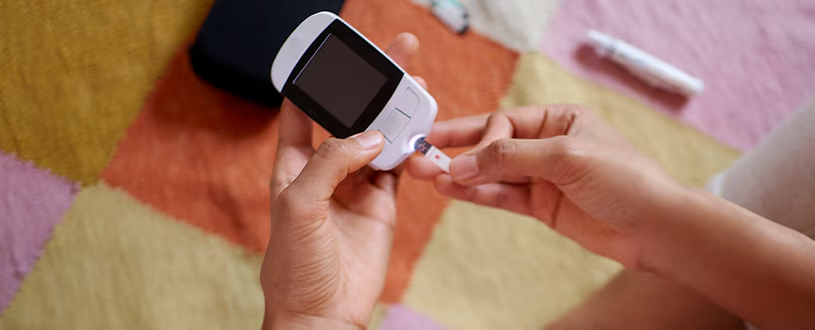Monitores para diabéticos
en el hogar
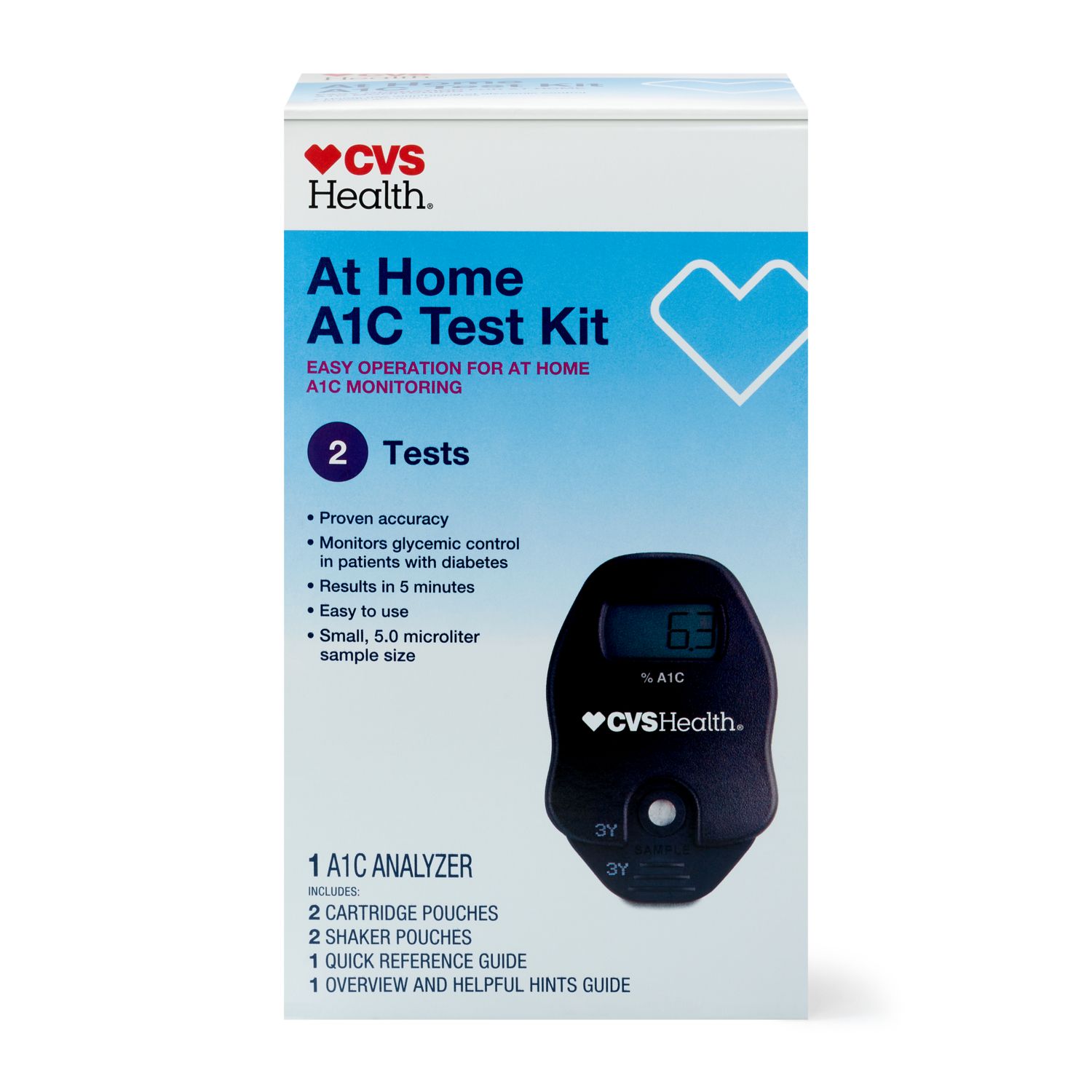)
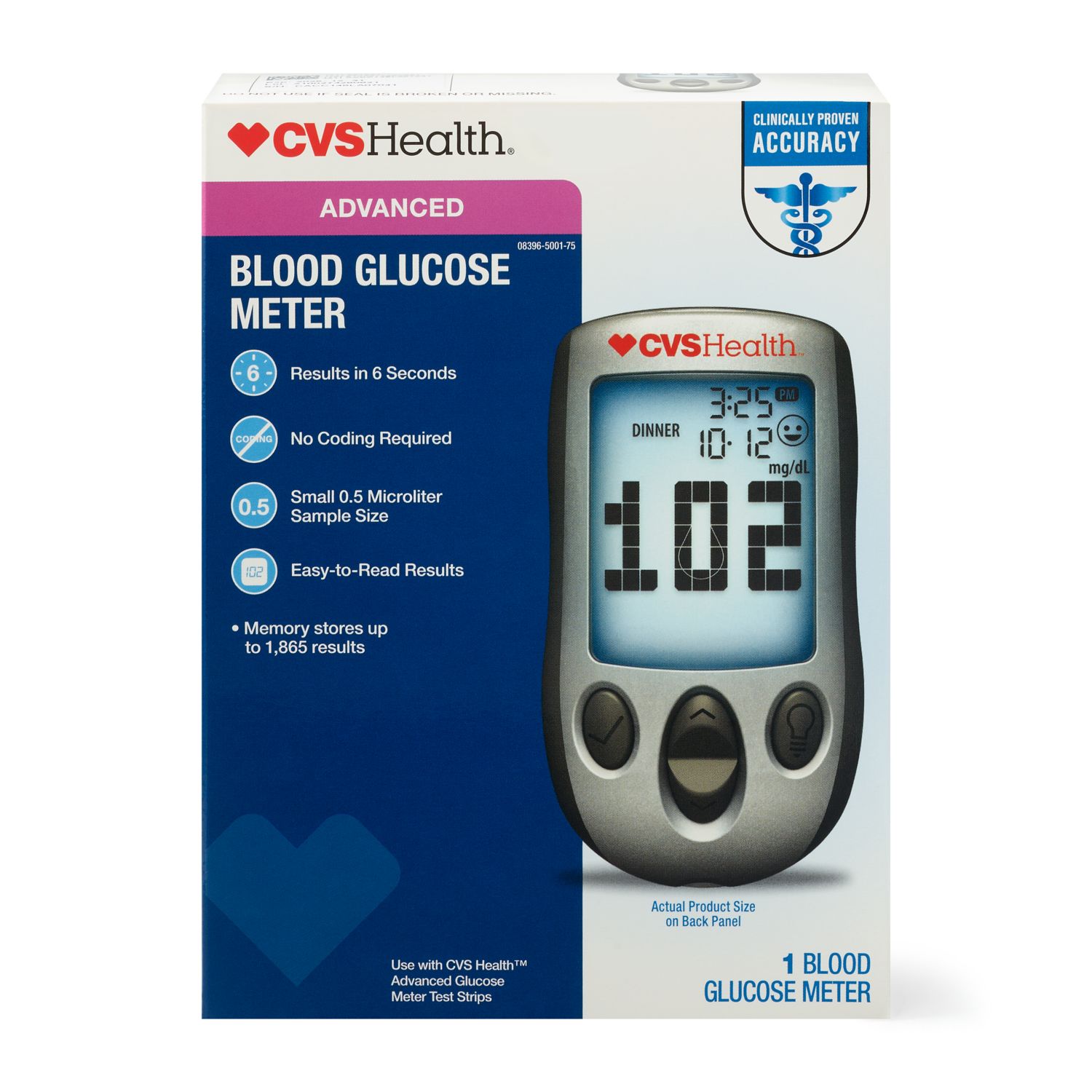)
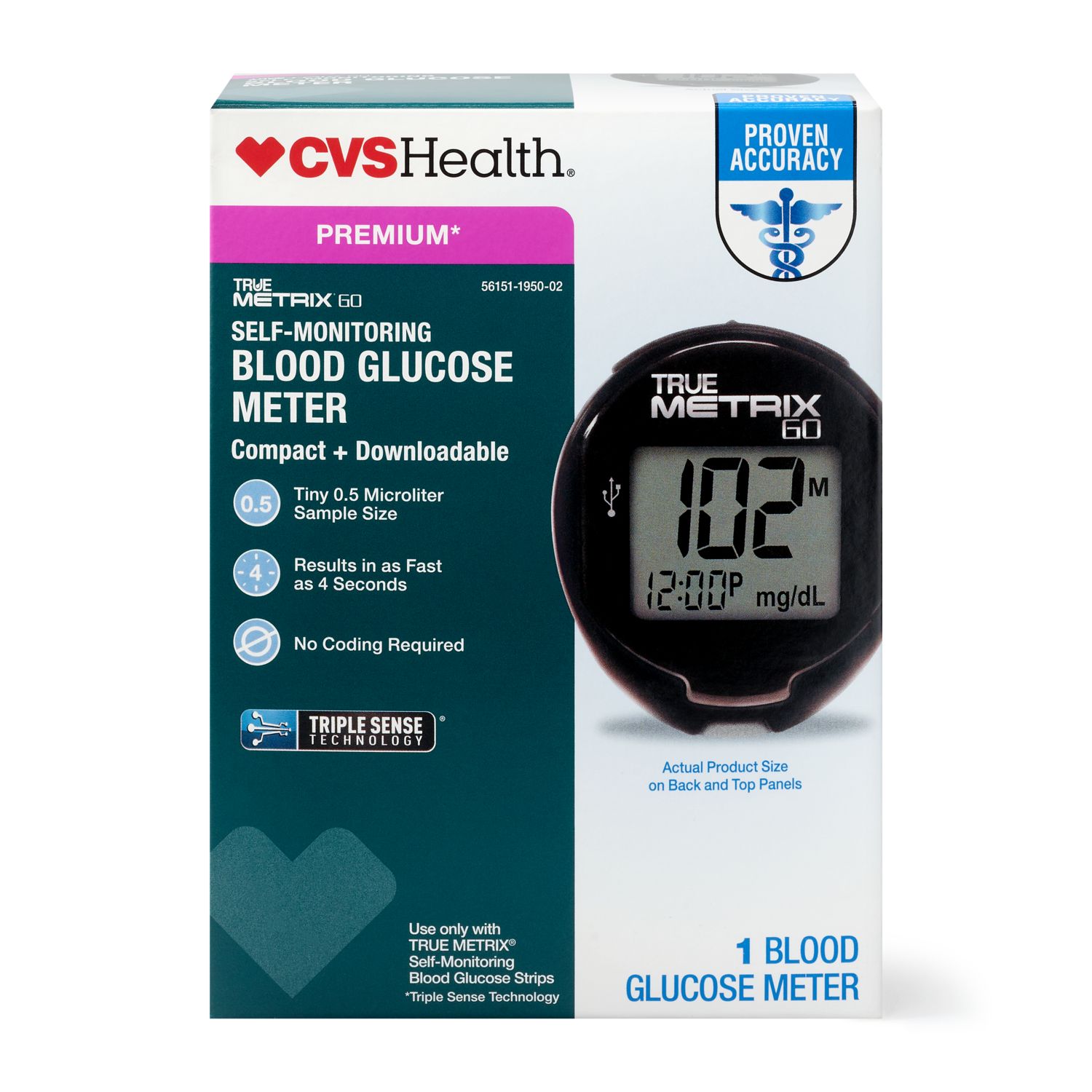)
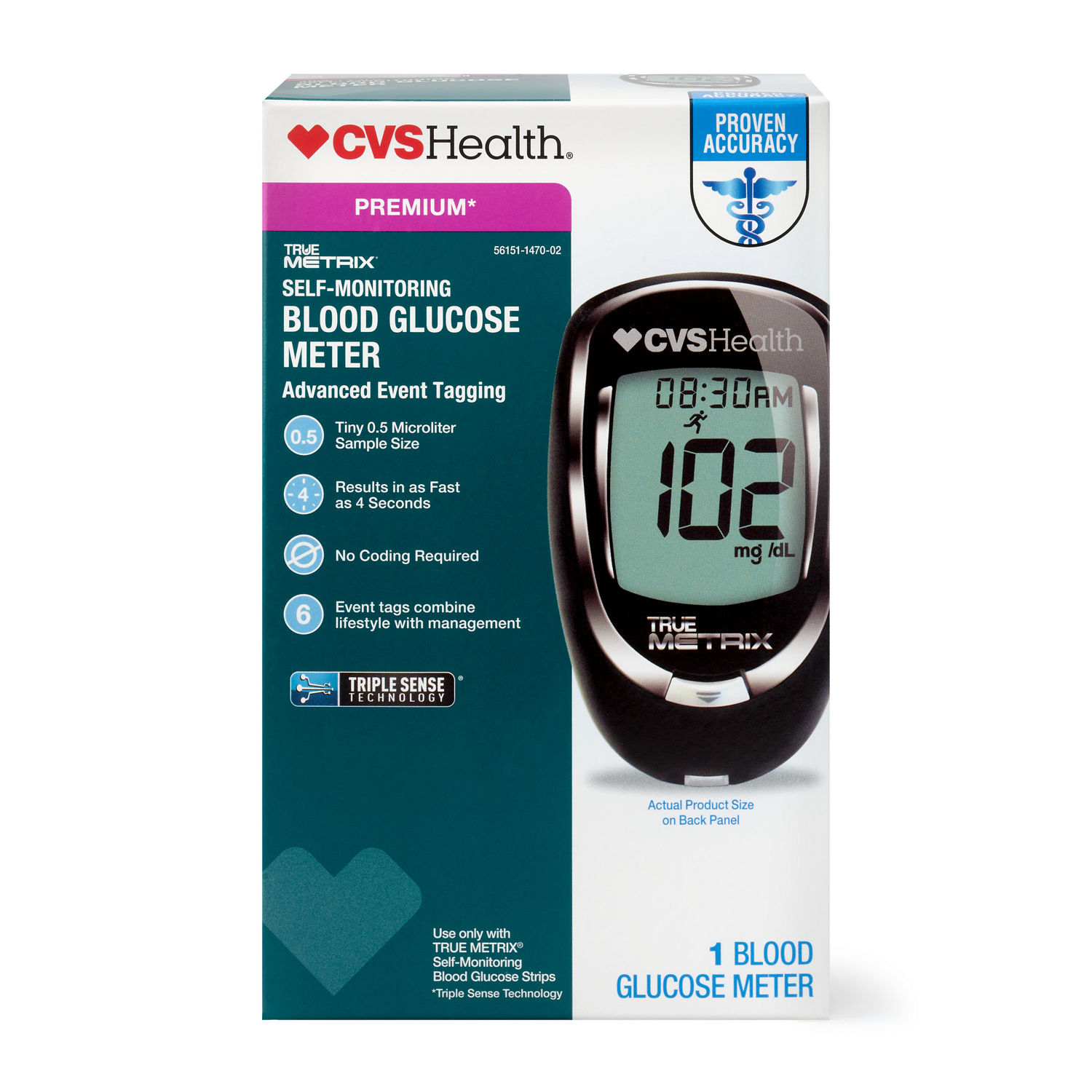)
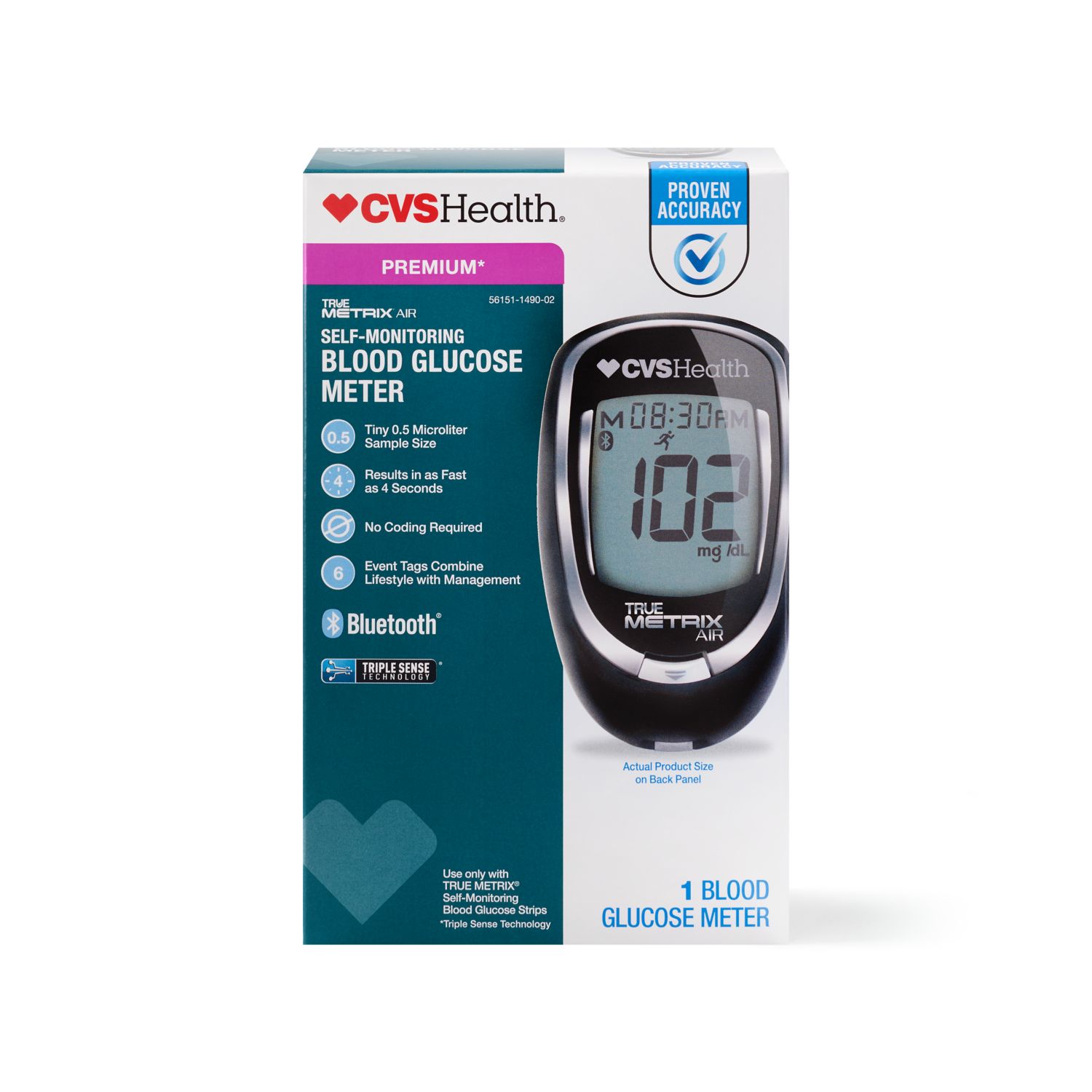)
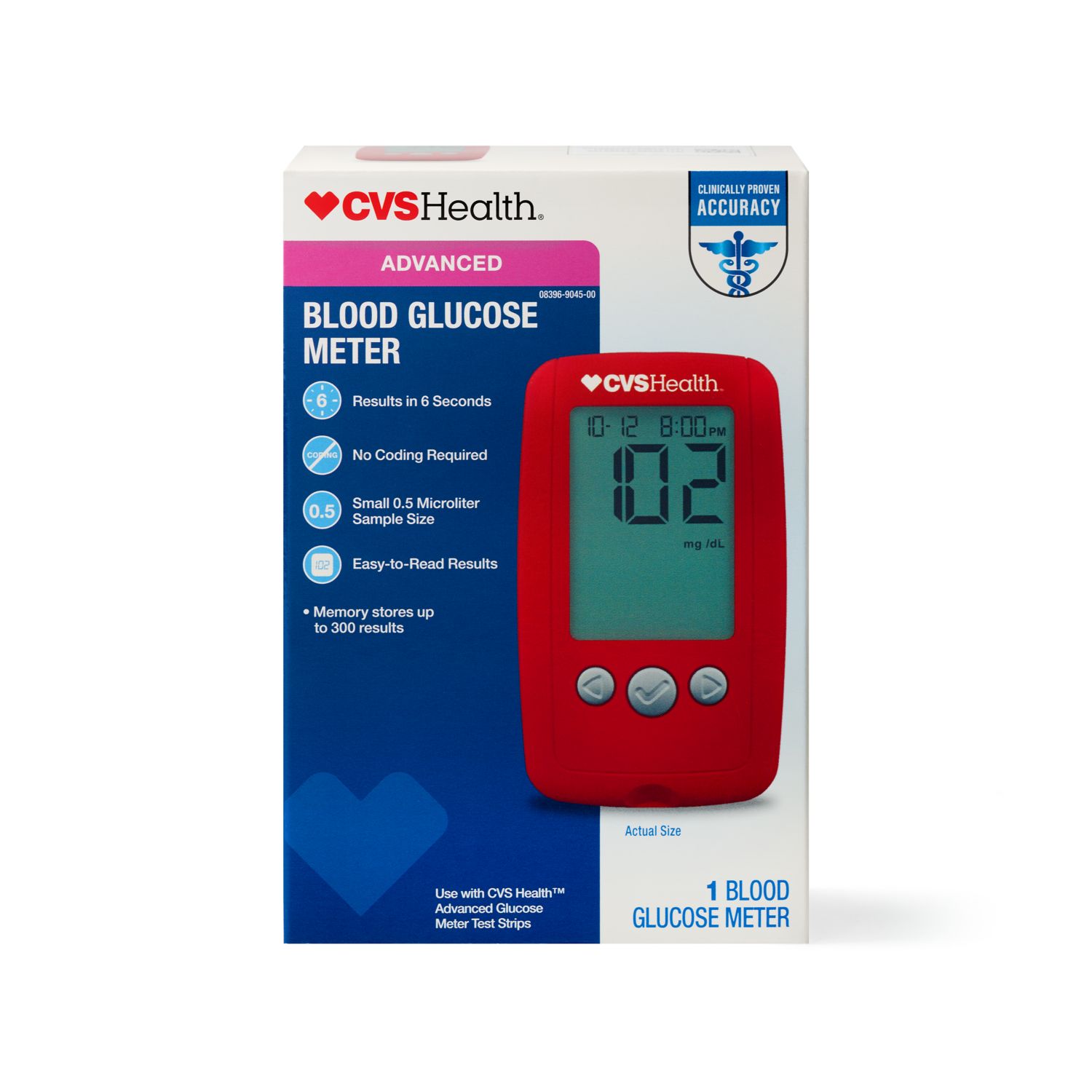)
)
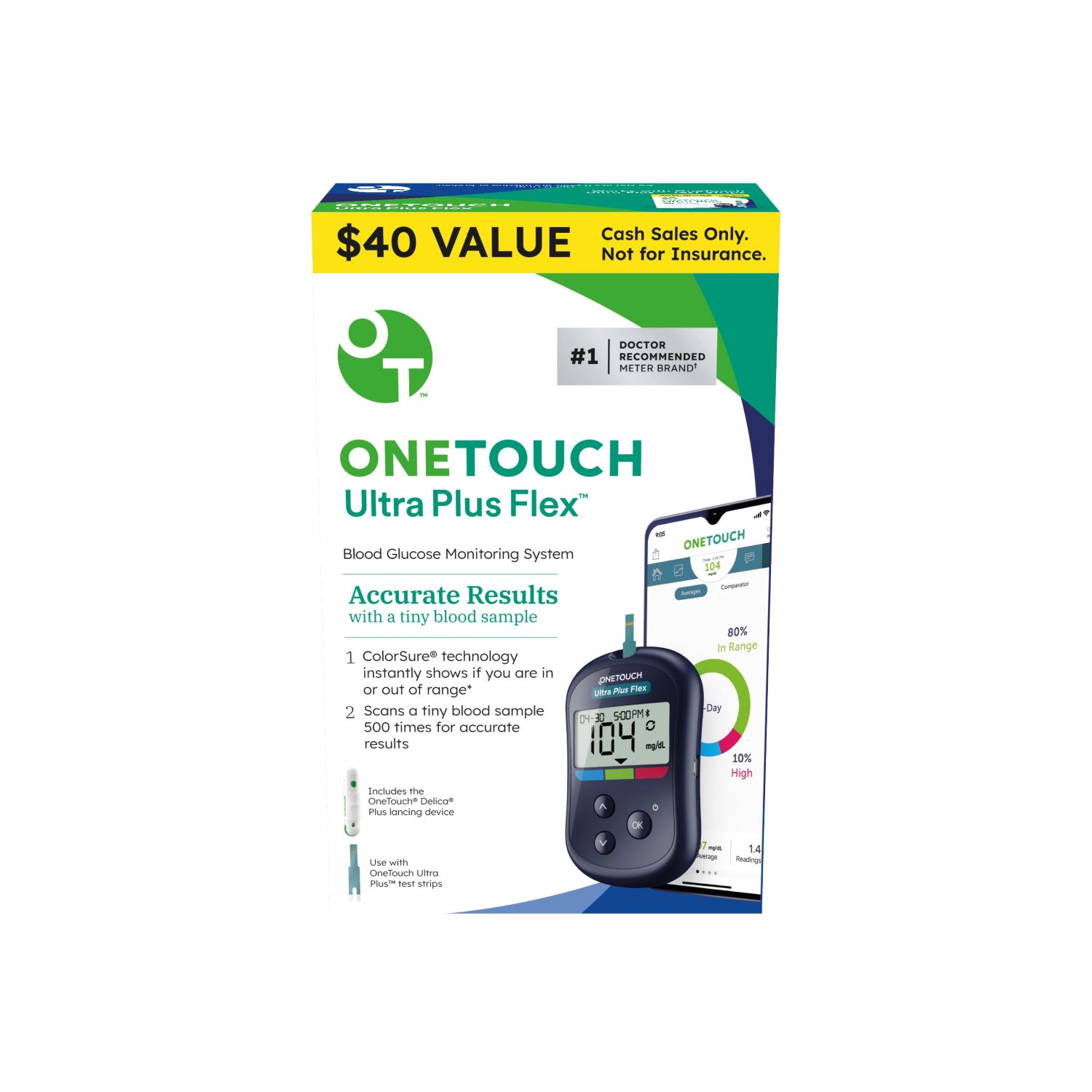)
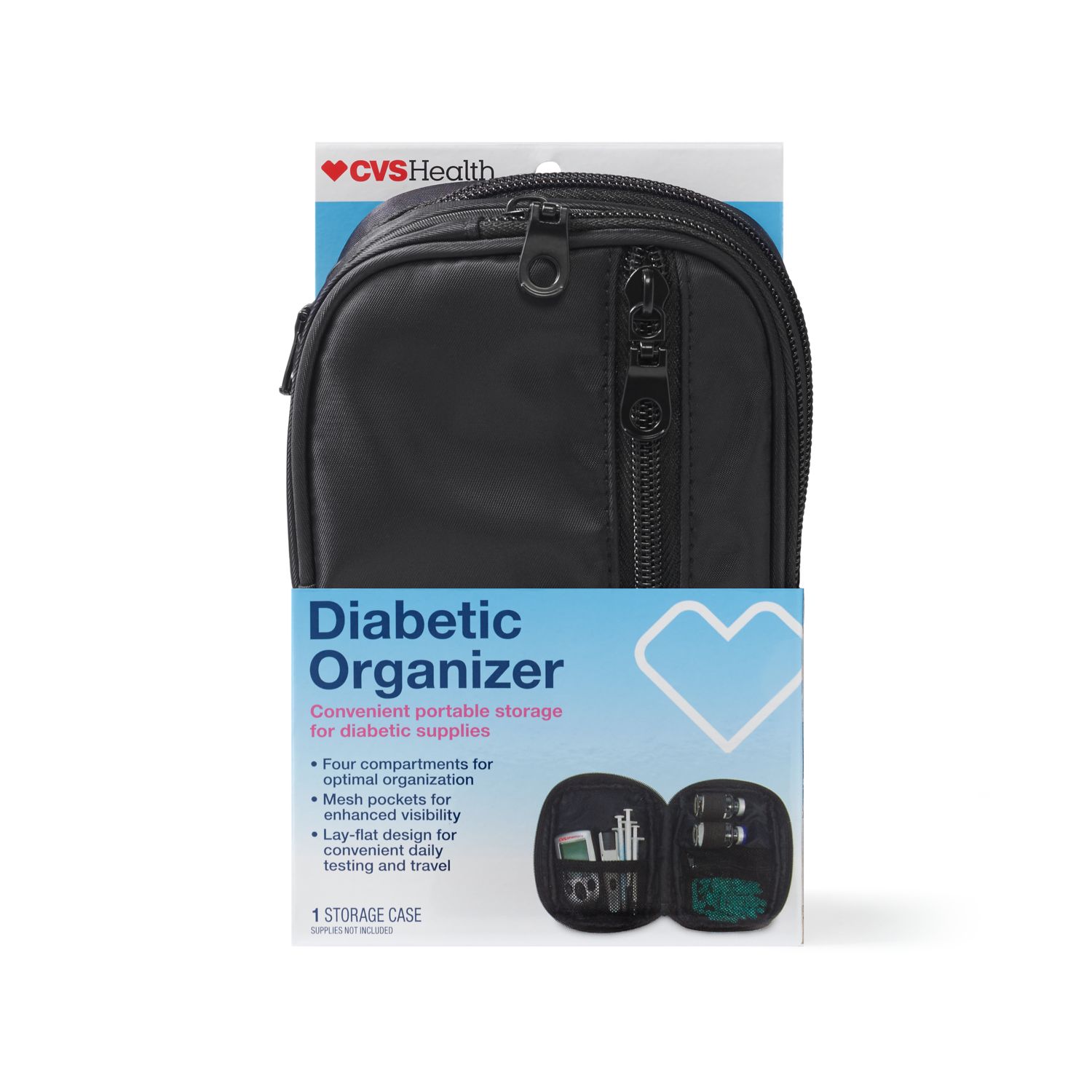)
Shop more diabetes care
If you have diabetes, it's vitally important to monitor your blood sugar levels to ensure that everything is within a healthy range. Blood sugar or blood glucose monitors are a convenient tool that can help you keep track of your blood glucose levels. Read on to learn more about these helpful healthcare devices so that you can keep track of your diabetes and manage it in a safe, effective way. Also learn more about early diabetes screening.
How to Test for Diabetes
There are several ways to test for diabetes, and one common method is through an A1C blood test. This test shows your average blood sugar level over the past two to three months by determining the percentage of blood sugar attached to the hemoglobin protein in your red blood cells. The higher the number, the better the odds are that you may have diabetes. You can also perform a random blood sugar test that is taken at a random time. Anything over 200 mg per deciliter suggests diabetes. Random blood sugar tests can be done on your own using a blood glucose monitor.
How to Lower Glucose
Food, exercise, stress, insulin and medication all may impact your blood sugar levels. By checking your numbers, you can begin to see how your lifestyle choices and diet are affecting your glucose readings. This can make it easier to better control your blood sugar. Plus, your medical provider can use the data to help assess how well your treatment plan is working, so that he or she can make changes as needed. Checking blood sugar levels can help alert diabetics to instances of dangerously high or low glucose levels. It can also help those diabetics who use insulin to calculate the correct dosage they will need.
How to Check Blood Sugar
To use a glucometer or blood glucose monitor, you prick your finger with a device called a lancet and then collect a small blood sample on a testing strip. An enzyme on the testing strip called glucose oxidase begins to react with the sugar in your blood. When you insert the strip into the glucometer, an electrode inside the device measures the speed of the reaction and then calculates how much glucose was present in the sample. The results are displayed on a digital screen. In some cases, you can save the readings for future review or use Bluetooth or Wi-Fi to send the data to your mobile device or computer.
What Does It Feel Like When Your Blood Sugar Is Too High?
If your blood sugar levels are too high, it can cause a range of unpleasant symptoms. The most common symptoms include extreme thirst and the constant feeling that you need to urinate. Other symptoms include headaches, feelings of tiredness or fatigue, blurry vision, nagging hunger, or trouble focusing or concentration. Those with extremely high blood sugar levels may experience diabetic coma which requires immediate medical attention. It is very important to monitor glucose levels to try and avoid feeling these symptoms.
What is the Normal Range for Blood Sugar?
Blood sugar levels can fluctuate somewhat, but there are specific ranges that indicate healthy or non-healthy levels.
• Blood sugar less than 100 mg/dl (milligrams per deciliter) after fasting for at least eight hours is a normal range. Your levels should be less than 140 mg/dl two hours after eating.
• Your blood sugar is often lowest during the day just before meals. If you don't have diabetes, your blood sugar level will likely be around 70 to 80 mg/dl. Some people may find that 60 is normal, while others are normal at 90.
• Use a blood glucose monitor to check your levels and if they appear to be abnormal or extremely high or low, contact your doctor right away.
What Are Glucose Meter Test Strips?
With blood glucose monitors or glucometers, test strips are used. The test strips are small and plastic. The test strips are used to help test and measure blood glucose levels.
When using a testing strip, individuals collect a small amount of blood by puncturing their skin with a small needle known as a lancet. This test strip combined with a glucometer will then be able to provide a reading of the amount of blood glucose in the blood when the sample was taken.
How To Use A Glucose Meter?
Using a glucometer is a good way to monitor type 1 and type 2 diabetes. It is also a good way to control blood sugar levels. It is important to know the proper way to use the meter.
Make sure you prepare your supplies and wash your hands
Turn on the glucometer and insert the test strip
Prick a finger, usually index, and squeeze a drop of blood
Place the drop of blood on the test strip
Wipe any remaining blood off the finger
Glucometer will take a few minutes to calculate blood sugar reading
Make sure you write down the results to keep track of readings and share with your healthcare provider.
Blood Sugar Test Kit
Blood glucose testing is typically the best way to assess how well your diabetes treatment plan is working. Your health care provider may also want you to test your A1C levels periodically. An A1C test tells you what your average blood sugar levels were over the past two to three months by checking how much of the hemoglobin protein in your blood is coated with sugar. Home A1C testing kits are available for you to get your A1C reading without having to schedule a doctor's appointment. Results from any home diagnostic test should be shared with your prescriber."
Best Glucose Meter
Before purchasing a new blood glucose monitor, talk to your doctor. He or she may give you advice about which glucometer is best for you to purchase or give you guidelines about how to select the right monitor. Once you receive your new monitor, read the directions for use carefully. Following them closely will help to ensure accurate readings. It's also important to store, clean and maintain your glucometer in accordance with the manufacturer's directions.
Búsquedas relacionadas
Tensiómetros, Tiras para prueba de azúcar, Medias de compresión, Cuidado de la piel y los pies, Tabletas de glucosa, Lancetas y accesorios, Understand Diabetes and Early Screening, Tensiómetros, Monitores de ritmo cardíaco, Dispositivos de alerta médica, Podómetros, Oxímetros de pulso, Termómetros

)
)
)
)
)
)
)
)
)
)
)


